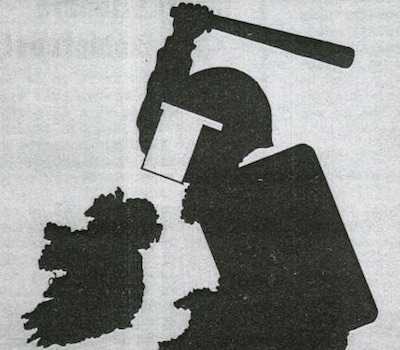
Undercover police who spied on political groups have been identified by a judge-led public inquiry in England into illegal police operations.
The spies infiltrated groups as far back as 1968, amid fears by the London establishment that left-wing groups would challenge the status quo.
One spy who operated under the fictitious name of “Rick Gibson” between 1974 and 1976 infiltrated the ‘Troops Out Movement’, which campaigned to end British rule in the North of Ireland.
The inquiry has heard that Gibson became a leading member of the south-east London branch of Troops Out Movement. His deployment was cut short after activists from another group he infiltrated, ‘Big Flame’, became suspicious. They confronted him after discovering a death certificate that appeared to show he had died as a young child.
The use of dead children’s identities was commonly used by undercover police to develop their false identities. Two other spies using the fake names of “Doug Edwards” and “John Graham” were also exposed as having illegally infiltrated anti-war groups in London.
It is the first time that the public inquiry, now being led by John Mitting, has identified ‘spycops’ or undercover police. The spies who have been previously been exposed were unmasked following investigations by campaigners and the media.
Since 1968, at least 144 undercover officers were sent by police to spy on more than 1,000 political groups, including a number sent to Ireland.
An Irish report on one notorious British ‘spycop’ Mark Kennedy, who used the false name Mark Stone, has indicated that he was likely given permission by Irish police to carry out undercover spy work in Ireland.
It has emerged that former Garda police chief Martin Callinan defended “confidential” arrangements available to his force to allow British undercover agents to spy in the 26 Counties without the Dublin government being informed.
The Mitting inquiry is to publicly examine the practices of Mr Kennedy and others in his unit after it emerged that they had been having sexual relationships with women as part of their attempt to infiltrate left-wing groups. However, the inquiry will not scrutinise what agents may have done in other jurisdictions, including Ireland. Neither has the Dublin government planned an inquiry into such practices here.
However, it has been confirmed Gardai knew that Mr Kennedy was in Ireland “on a number of occasions” under his alias between 2004 and 2006. He joined protests against President Bush’s visit to Ireland for an EU-US summit in 2004 and the Shell to Sea campaign in County Mayo in 2006. He also attended protests at Shannon airport over alleged extrajudicial rendition flights.
Lynn Boylan, the Sinn Fein MEP, said recently it was “essential” that it be clarified who, if anyone, in the gardai sanctioned Mr Kennedy’s presence.
“The minister for justice and the gardai have deliberately tried to prevent information coming into the public domain on what they did and did not know about the activities of British police spies in Ireland,” she said.
![[Irish Republican News]](https://republican-news.org/graphics/title_gifs/rn.gif)
![[Irish Republican News]](https://republican-news.org/graphics/title_gifs/harp.gif)

